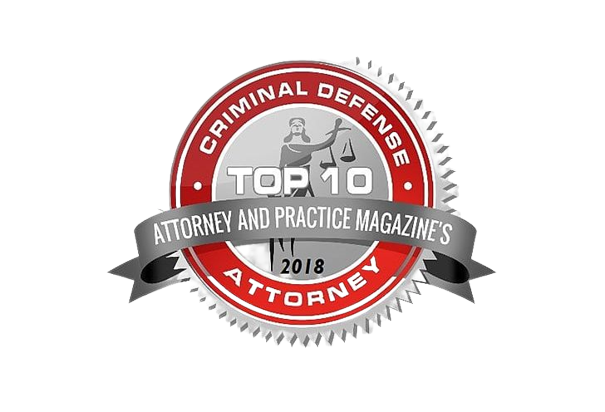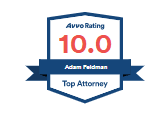Phoenix Corruption Lawyer
A Former Prosecutor on Your Side
Home > Corruption

2023 Super Lawyers

AV Preeminent Rated

Best Law Firm

A+ BBB Accredited
Phoenix Bribery and Corruption Lawyer
Bribery and corruption charges have become more and more common over the years. In addition, they have become more visible, and most allegations of this type receive widespread coverage by the media.
Because corruption offenses carry serious penalties, including jail time, fines and, where applicable, a bar to future public employment, they must be defended aggressively. Contact The Feldman Law Firm and speak to an experienced Phoenix corruption attorney.
What is Corruption?
There are a variety of forms of corruption. They include:
- Bribery (public official or public employee). Bribery in the public sector is prohibited under R.S. 13-3602. That law says that it is a crime for a public servant (employee) or party officer (a person holding a position in a political party), with corrupt intent, to accept, solicit or agree to accept any benefit with the understanding that the benefit is intended to influence the vote, discretion or opinion of the party officer or public servant. It is likewise an offense to offer or provide such a benefit to a public servant or party officer. A benefit is anything of value or advantage, and it includes both present and future benefits. Bribery is a class 4 felony.
- Trading in Public Office. It is illegal to offer or confer a benefit on a party officer or public employee with the understanding or the agreement that the offeror will be nominated as a candidate for, or be appointed to, a public office. A violation is a class 6 felony. A.R.S. 13-2603.
- Offer to Exert Influence. It is a class 4 felony to obtain or seek a benefit from someone who claims that he or she will improperly influence the actions of a public employee or public servant. A.R.S. 13-2606.
- Commercial Bribery. Not all corruption charges involve public employees and officials. In Arizona, it is also illegal to confer a benefit on an employee without the employer’s consent in order to influence the conduct of the employee in the commercial affairs of the employer, where the conduct causes the employer an economic loss. It is also an offense to accept such a benefit, again where it leads to an economic loss to the employer. Commercial bribery is classified by the value of the benefit received or given. If the value is (a) more than $1,000 it is a class 5 felony; (b) from $100 to $1,000 it is a class 6 felony; and (c) less than $100 it is a class 1 misdemeanor.
Request Your Free Consultation
Adam Feldman Answers Questions About White Collar Crimes
- Under A.R.S. 38-481, it is unlawful for a judicial, executive or legislative officer to appoint or to vote for the appointment of anyone who is related to that officer to the third degree or closer. This includes those who are aunts, uncles, nieces, nephews, great-grandchildren, or closer. Judicial, legislative and executive officers include all state, county and municipal officials who are appointed or elected. It also includes, among others, government department heads. A violation is a class 2 misdemeanor.
- Influence Peddling. This is the use of one’s influence in a governmental body or commission to obtain favorable treatment for another person or entity, in most cases in return for a payment of some kind, although the payment does not have to be in dollars. An example would a commission member accepting money in exchange for voting for higher rates for a utility or other business regulated by that commission. In most cases, the conduct will fit into the category of bribery.
- Conflict of Interest. There are a host of situations in which it could be alleged that a public officer or employee may have a conflict of interest and failed to disclose that interest or violated the law by doing business with the agency with whom the officer or employee is associated. The conflict of interest laws go beyond the above examples and are contained in A.R.S. 38-503 through 505. An intentional or knowing violation is a class 6 felony, and a reckless or negligent violation is a class 1 misdemeanor, In either case, the penalty includes forfeiture of the person’s public office or employment.
There are other examples of bribery and other forms of corruption, but many will fall into the categories above.
Award Winning Criminal Defense








Building a Defense to a Corruption Charge
The defenses that may apply in a corruption case will depend not only on the facts of your case, but also on the particular charge you are facing. For example, a conflict of interest charge may be successfully defended by showing that the public employee (or his relative) had only a remote interest in the outcome of a particular decision by the public body in question. In other cases, defenses could include violations of the Fourth Amendment (illegal search and seizure), as well as the Fifth Amendment (right to counsel).
If you are charged with bribery or corruption, contact The Feldman Law Firm. We will examine your case and present you with an honest assessment of where you stand, and how we can provide build an effective defense. Your initial consultation is free.
Criminal Law Firm Near You
Schedule a Consultation
Call us 24/7 at 602-540-7887 or fill out the form below to receive a free and confidential initial criminal defense consultation.



